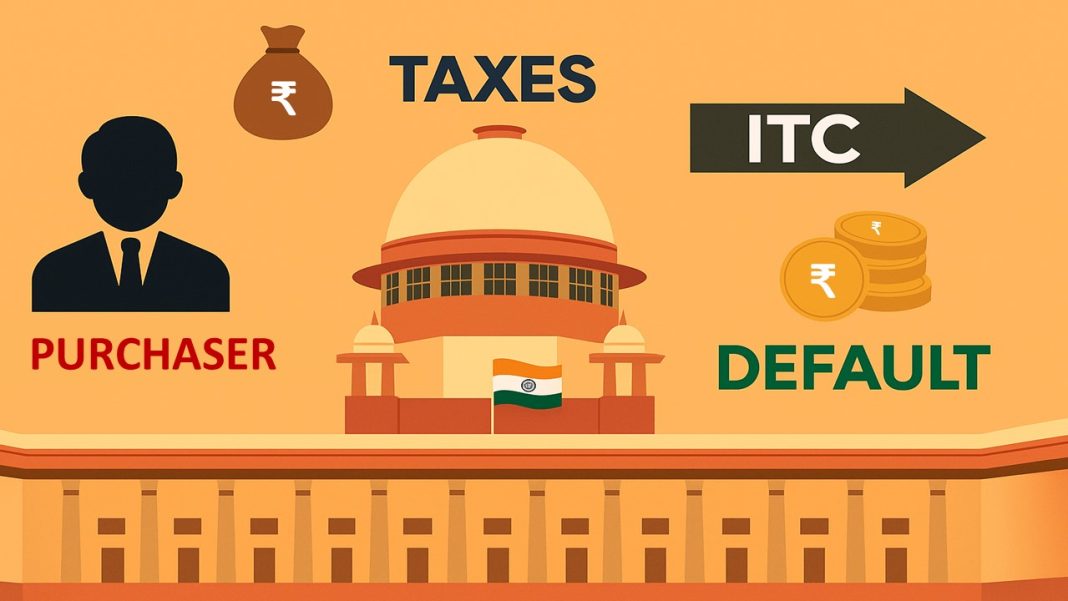Bona Fide Purchaser Cannot be Denied ITC Benefits for Seller’s Default: Supreme Court
The Supreme Court, in an important ruling, has allowed a purchasing dealer to claim the Input Tax Credit (ITC) benefit, which was rejected due to the seller’s default in depositing tax.
In this case, the main issue was whether a registered purchasing dealer (respondent) can claim Input Tax Credit (ITC) when the seller dealer, even after collecting taxes from the purchaser, failed to deposit the collected tax with the government.
The registered seller issued invoices to the purchasing dealer, M/s Shanti Kiran India (P) Ltd (respondent), and the respondent also paid taxes. However, after the transaction, the seller’s registration was cancelled, and they did not deposit the collected tax with the government.
When the issue was sent to the Delhi High Court, it ruled in favour of the purchaser, saying that they still have the right to claim ITC benefit because they have paid the taxes in good faith. Therefore, the High Court allowed the respondent to claim the ITC benefit after verifying the invoices.
The Revenue filed a writ before the Supreme Court of India challenging the decision of the High Court.
The Supreme Court cited the Delhi High Court Decision in On Quest Merchandising India (supra), which ruled that a bona fide purchasing dealer should not be denied ITC due to the seller’s default in depositing the tax. The court held that if valid tax invoices were issued, no mismatches were found in Annexure 2A and 2B, and there is no proof of collusion between the purchaser and the seller, then the purchaser must be allowed to claim ITC.
The Apex court reviewed the case and observed that there was no dispute regarding the transactions or the invoices. Therefore, the Supreme Court upheld the Delhi High Court’s decision and allowed the purchasing dealers to claim ITC.
Case Citation: The Commissioner Trade And Tax Delhi Vs M/S Shanti Kiran India (P) Ltd (Supreme Court); CIVIL APPEAL NO. 9902/2017; 09/10/2025



